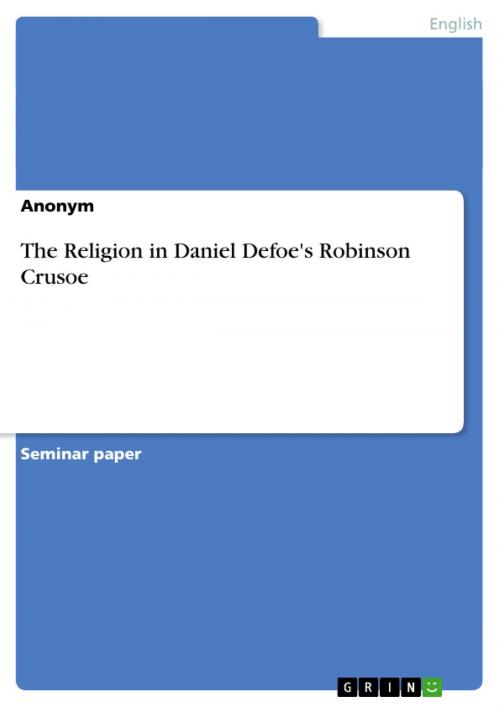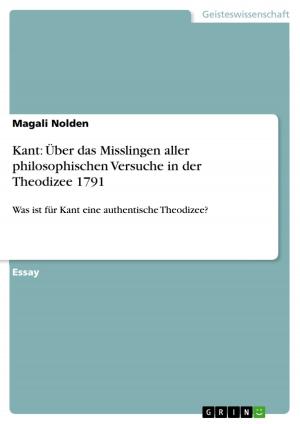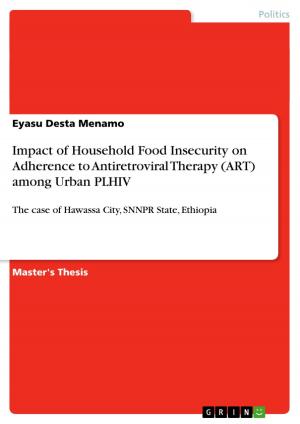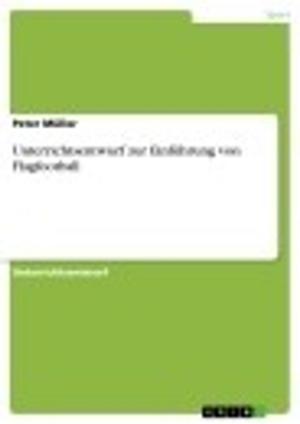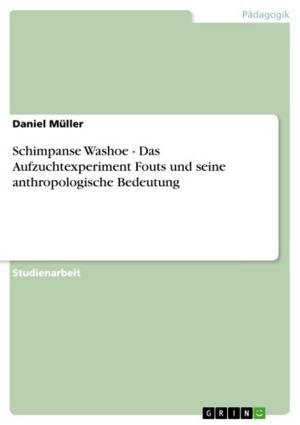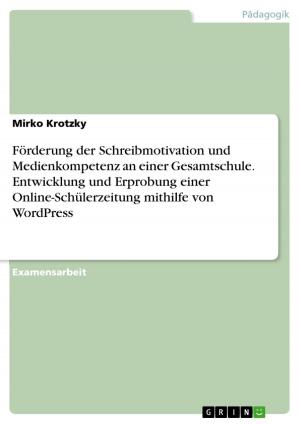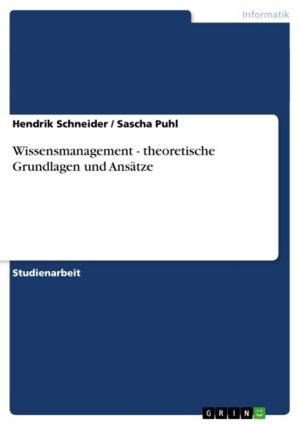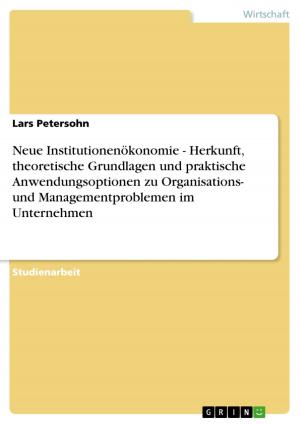The Religion in Daniel Defoe's Robinson Crusoe
Fiction & Literature, Literary Theory & Criticism, British| Author: | Anonymous | ISBN: | 9783638618601 |
| Publisher: | GRIN Verlag | Publication: | February 25, 2007 |
| Imprint: | GRIN Verlag | Language: | English |
| Author: | Anonymous |
| ISBN: | 9783638618601 |
| Publisher: | GRIN Verlag |
| Publication: | February 25, 2007 |
| Imprint: | GRIN Verlag |
| Language: | English |
Seminar paper from the year 2006 in the subject English Language and Literature Studies - Literature, grade: 1,7, Christian-Albrechts-University of Kiel, 13 entries in the bibliography, language: English, abstract: In 1719, Daniel Defoe published the novelThe Life and Strange Surprising Adventures of Robinson Crusoe of York, Mariner.Defoe's most famous and most successful work is regarded as the first realistic novel of the world literature. Therefore Defoe can be considered as the pioneer of the modern English novel (Nünning 1998: 124-127). This view is justified in the fact that Defoe uses a realistic way of narrating and turns away from the tradition of the fantastic and romance-like way which was predominant so far. Besides he chooses a middle-class person to be the protagonist, a life which the most part of his readers could identify with. Finally, Defoe applies a concrete determination of time and location in the novel which was unknown so far as well (Bode 2005: 43; Kley 2002: 2). The story, a fictional autobiography, is told by the fictitious person Robinson Crusoe who leaves his home to explore the world. After different journeys his ship gets shipwrecked and Robinson Crusoe reaches as the only survivor a remote and isolated island where he lives for the following 28 years until he gets rescued. The novel is interpreted from different perspectives. Therefore it is regarded as an adventurous travelogue, as an economic parable or as a do-it-yourself-manual. The interpretation as an adventurous travelogue examines for example the topic of a lonely person in an unfamiliar land who develops different strategies to survive while the interpretation as an economic parable would emphasise Robinson Crusoe's way of thinking rational and economical, e.g. while equipping his cave which functions as a kind of logistical store (Defoe 1719: 55). The interpretation as a do-it-yourself-manual could refer for example to the way of producing tools out of very scarce material (Defoe 1719: 54-55). In this research paper, however, I will make use of another way of interpreting Defoe'sRobinson Crusoe,namely to regard the novel as a religious allegory, i.e. I will examine the novel from the religious perspective. I will present the development in his relation to God and point out the importance of religion for Robinson Crusoe after his conversion, in each case demonstrated by suitable exemplary passages. Therefore, after beginning with an investigation of Crusoe's character and his relation to religion before he arrives on the island I will turn to Crusoe's time on the island which includes his first religious contacts as well as his conversion.
Seminar paper from the year 2006 in the subject English Language and Literature Studies - Literature, grade: 1,7, Christian-Albrechts-University of Kiel, 13 entries in the bibliography, language: English, abstract: In 1719, Daniel Defoe published the novelThe Life and Strange Surprising Adventures of Robinson Crusoe of York, Mariner.Defoe's most famous and most successful work is regarded as the first realistic novel of the world literature. Therefore Defoe can be considered as the pioneer of the modern English novel (Nünning 1998: 124-127). This view is justified in the fact that Defoe uses a realistic way of narrating and turns away from the tradition of the fantastic and romance-like way which was predominant so far. Besides he chooses a middle-class person to be the protagonist, a life which the most part of his readers could identify with. Finally, Defoe applies a concrete determination of time and location in the novel which was unknown so far as well (Bode 2005: 43; Kley 2002: 2). The story, a fictional autobiography, is told by the fictitious person Robinson Crusoe who leaves his home to explore the world. After different journeys his ship gets shipwrecked and Robinson Crusoe reaches as the only survivor a remote and isolated island where he lives for the following 28 years until he gets rescued. The novel is interpreted from different perspectives. Therefore it is regarded as an adventurous travelogue, as an economic parable or as a do-it-yourself-manual. The interpretation as an adventurous travelogue examines for example the topic of a lonely person in an unfamiliar land who develops different strategies to survive while the interpretation as an economic parable would emphasise Robinson Crusoe's way of thinking rational and economical, e.g. while equipping his cave which functions as a kind of logistical store (Defoe 1719: 55). The interpretation as a do-it-yourself-manual could refer for example to the way of producing tools out of very scarce material (Defoe 1719: 54-55). In this research paper, however, I will make use of another way of interpreting Defoe'sRobinson Crusoe,namely to regard the novel as a religious allegory, i.e. I will examine the novel from the religious perspective. I will present the development in his relation to God and point out the importance of religion for Robinson Crusoe after his conversion, in each case demonstrated by suitable exemplary passages. Therefore, after beginning with an investigation of Crusoe's character and his relation to religion before he arrives on the island I will turn to Crusoe's time on the island which includes his first religious contacts as well as his conversion.
